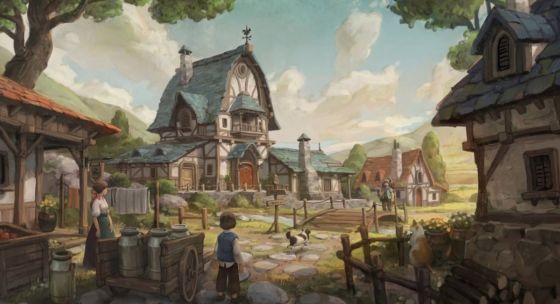Village
Villages are clustered communities of humanoid settlement, larger than hamlets but smaller than towns. They have populations ranging from 201 to 1,000 persons. Independent villages are located in type-4 hexes, but villages may occur as attached neighbourhoods related to both towns and cities. Some villages may also be settlements, regardless of the hex type.
Contents
Villages contain various fixed dwellings and facilities, as well as vegetable patches, orchards, green spaces and animal enclosures. Settlement villages may possess minor fortifications but most villages don't. Villages built upon a water course may include a ford, bridge or ferry, or may be a transshipment point. Usually a riverboater can be hired if no regular service across the river is available.
Most occupants of a village work upon surrounding fields, walking out to them in the morning and returning at night. Authority is shared between one or more wealthy squires and a village council, the latter composed of 3-12 experienced, elder persons. Better than 9 of 10 villages possess a church or temple, with the cleric acting as an arbiter and advisor to others.
Further details below describe "independent" villages.
| Detail | Village Type | ||
|---|---|---|---|
| Small | Large | Settlement | |
| Population | 2-5 hundred +d100 |
4-9 hundred +d100 |
see records |
| Coins | 1, +1 if located on large lake or sea | ||
| Food | 3 | ||
| Hammers | 2 | 3 | variable |
Traffic & Trade
Villages have a small but steady movement of persons upon roads or routes that join with the outside world. This creates a moderate demand for goods and services which culminates in "market days", where local handicrafts, materials and stores can be purchased. The choice is limited and can't compare with a market town, yet common goods and food can be obtained in small amounts. Market days traditionally occur on days of rest and relaxation, such as holy days or during festivals. Peasants able to set down their labours join in order to share company, play games, have a bath, exchange news, sell what they have to strangers and barter. News from outside is highly valued, as are regular visitors.
Villages near to one another often make arrangements to share market days back and forth, so as not to compete with each other. Some vendors take hand carts back and forth, to benefit from a new group of buyers at each village.
